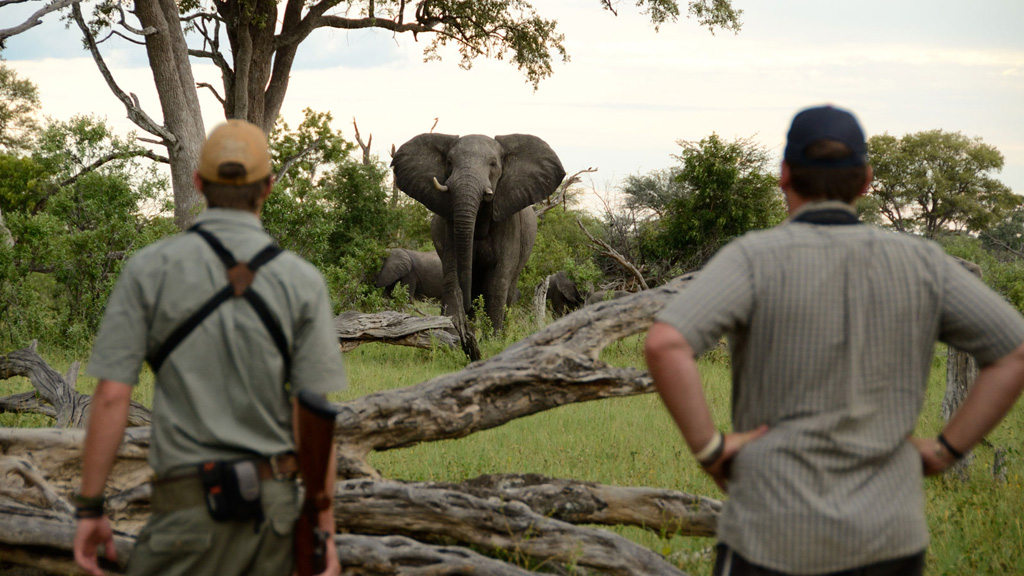Safari School
Back to all VideosConcerns about Travelling to Africa

Concerns about Travelling to Africa
Module : Elephant Video 6Most people want to go to Africa and it is high on people’s bucket lists all around the world. Those who have been to Africa swear by it and consistently rank it as one of the best things they’ve ever done. Yet some people still hesitate about going to Africa based off information or a stereotype that often can be incorrect.
The major reasons people don’t go to Africa, include:
DISTANCE
Africa used to be a lot more difficult (and expensive) to get to from Australia than it is now. With a virtual monopoly on flights to and from Johannesburg (or even Sydney – Zimbabwe back in the day) the cost was often quite high indeed and made a trip to Africa an expensive proposition. Then the airline landscape changed and now there are many airlines flying into many capital cities all across Africa. From the traditional Australian and South African airlines heading into Johannesburg you also have the Middle East newcomers servicing East Africa and parts of Southern Africa. Add to that mix Asian airlines servicing both areas and suddenly you find that this competition means the cost has plummeted to costs similar as a flight to the USA. It is also roughly the same distance to Johannesburg from the east coast of Australia as Los Angeles is from the east coast meaning that it should be viewed the same. Gone are the days of 4 stops on the way to Kenya and long boat journeys. It is an accessible trip and one that is becoming easier and easier.
DANGER
People are afraid of Africa and still view it as the dark continent or a place where danger lurks at every step. This danger usually comes in two forms as either the people or the animals.
Firstly, let’s look at the people aspect. Africa has a history of civil war and armed conflict, much in the same way a lot of countries in Europe have. The difference is that Africa is about three times bigger than Europe meaning that whatever war may be occurring in a country (most times in West Africa) it has little to no impact on a country the other side of Africa. The idea comes from the concept that all of Africa is “the same” with little knowledge of the differences of culture, the differences of history and geographical distance. Africa also suffers from the fear of the unknown. Whereas we might know someone from Serbia or Israel or Russia that makes the conflict there more human it is unlikely we know anyone from Liberia, Sierra Leone or Mali. This results in a “blend of countries” that smears the entire continent with the same brush. Whereas movies such as “Blood Diamond” are based in truth, an entire continent shouldn’t be crossed off because of one country’s troubles. People have no trouble travelling to Croatia and Bosnia because of the war 20 years ago but won’t go to Rwanda because of the same. The same applies to a disease outbreak in West Africa affecting all of Africa yet people won’t hesitate to travel to Hong Kong.
It is also worth pointing out that travel in Africa is different to travel in Europe. When visiting a European city you endeavour to spend as much time as possible in that city amongst the people and in its landmarks. In Africa you tend to do the opposite. You tend to spend an arrival or departure day in a hub city such as Johannesburg or Nairobi and (with the exception of Cape Town or Victoria Falls/ Livingstone) you usually spend the majority of your time in National Parks, private reserves and wilderness areas. You are removed from the day to day city life and are amongst the animals and scenery. Therefore you don’t have the risk of scams, pickpocketing and terrorist incidents you may come across in European cities. If you are spending time in African cities you aren’t venturing into the bad areas of the cities where crime may occur much in the same way you wouldn’t in Europe, the USA or even in your home area. When was the last time you went to Los Angeles for Disneyland and spent a week in South Central?
The animals also don’t present a problem to travellers unless tourists generally lack respect for the animals. Although they are wild animals they aren’t out to eat you and will generally go out the way to ignore you or avoid you. That’s why its’ called “game spotting” and not “game life defending”. These animals are used to vehicles and have grown up amongst them so when you are driving through the bush in an open vehicle they don’t give you a second thought. You might be in danger if you decide to go for a midnight stroll through the African bush in a national park by yourself but some may argue that would be natural selection.
COST
This tends to be a major objection for most people and it is true that Africa can be more expensive that a two week trip to Bali or Fiji. Before we look into the details it is also worth pointing out the difference of Cost vs. Value.
There is an important difference between what something costs and what something is worth. It’s the reason we are interested about items on “special” because we know we are buying something valued higher than what it is costing. It’s also the reason people pay a little extra for items or trips because they know that the money is an investment towards quality. In that light, when buying a TV, the Sony TV on special is usually a better choice than the cheapest TV in the store.
Africa is the one of the greatest value for money travel options around. It’s not only the diversity of experience but also the feeling of adventure and discovery that comes with it. Add in the excitement and wonder of a safari, the comfort and cuisine of a lodge, the scenery of some of the world’s most spectacular places and the friendliness of the locals and you can see the value.
That aside, the cost also is misrepresented. People often assume that trips are all priced either like overlanding or like a European holiday. On these trips you pay your initial fee at home then pay constantly for things like food, experiences, day tours and the like. In Africa (once again with the exception of Cape Town/ Victoria Falls) these things are almost always included. When you stay at a lodge for 4 days it includes 4 days of accommodation, game drives, game walks and meals. It is actually more comparable to a cruise than a European trip. Spending money is actually quite low because you have prepaid most things before you go.
You can also choose the price point you are willing to go to. You can easily choose whether $1600 will get you a 7 night, 4 night, 3 night or 1 night stay in Southern Africa. Each obviously comes with a differing level of experience and accommodation but you can’t simply judge an entire destination as expensive by the pricing of its most expensive option. In East Africa you don’t have the range of options that you will find in Southern Africa but can still choose between levels of trips from the private plane down to the minivan to save money.
Finally, another reason that people don’t go to Africa (despite their wishes to do so) is because they think it is unattainable. Most people think they will need $20,000 and 4 months off work to see Africa and that it is the only way. When travelling to Europe you can simply take 3 week trip and focus on an area or a few countries. With flights generally cheaper and shorter going to Africa, why not do the same thing? A three week trip in southern Africa is a great getaway. You don’t need to be an explorer like David Livingstone and take months to travel the entire continent. Short trips can be an amazing getaway, very attainable and help to alleviate cost. It can even be used as a stopover destination for Europe.
When you start to look at it they stop being reasons and start being outdated excuses. Considering it is now cheaper and easier to visit Africa than it was 20 years ago (how many destinations can say that?) and you see why there has never been a better time to go.















